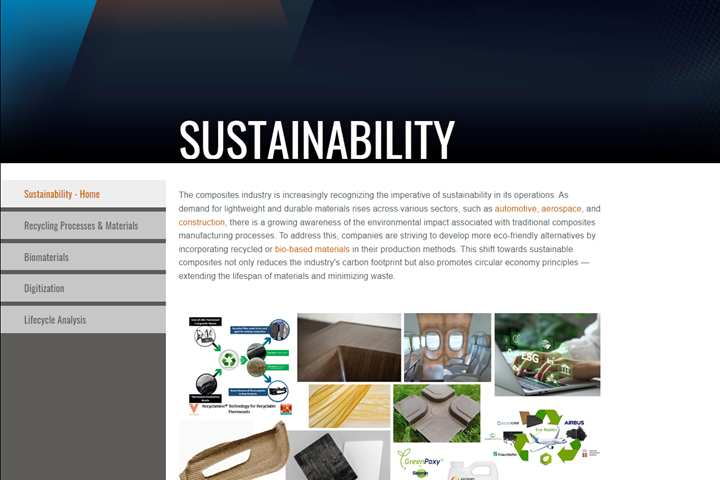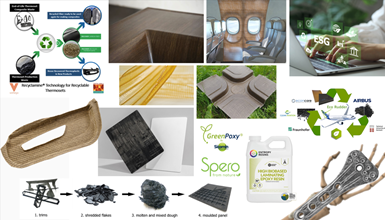New CW microsite recognizes the importance of sustainability in composites manufacturing
To better organize and address the topic of sustainability, CW has curated this content into a focused digital hub for readership.

Photo Credit: CW
The composites sector acknowledges the vital importance of sustainability within its operations. As the need for lightweight and long-lasting materials continues to surge in industries like automotive, aerospace and construction, there’s a growing recognition of the environmental consequences linked to conventional composites manufacturing techniques and material developments.

In response to this concern, companies are actively working to create greener alternatives and more environmentally conscious solutions, whether that’s by integrating recycled or bio-derived content into developed components and structures, establishing/using new tools to track a facility’s carbon footprint, laying the foundation for recycling capabilities or simply fostering sustainable innovation. This transition towards a more eco-conscious industry not only diminishes its environmental impact but also champions the principles of a circular economy by elongating material lifespan and reducing waste.
With sustainability becoming a rising hot topic, we at CW have taken it upon ourselves to organize our sustainability-based content into an organized digital hub for readers via a new sustainability microsite. Some key topics we filter this content into:
- Recycling Processes & Materials: There has been a growing emphasis on finding ways to recycle composite materials and products. This includes developing processes to recover and repurpose composite materials, reducing waste and extending the lifespan of composites.
- Biomaterials: Researchers and manufacturers have been working to develop more environmentally friendly resins and reinforcement materials, such as bio-based resins and recycled fibers.
- Digitization: Digitization in composites manufacturing refers to the integration of digital technologies and data-driven processes into various stages of the composites production and supply chain. This transformation has the potential to improve efficiency, quality, and sustainability in the manufacturing of composite materials and products.
- Lifecycle Analysis: Assessing the environmental impact of composites throughout their entire lifecycle has gained importance. This involves considering factors like raw material extraction, manufacturing, transportation, product use and end-of-life disposal.
Take a look and stay up-to-date with what’s new and what’s coming in sustainability, as it pertains to the composites industry.
Related Content
-
Watch: A practical view of sustainability in composites product development
Markus Beer of Forward Engineering addresses definitions of sustainability, how to approach sustainability goals, the role of life cycle analysis (LCA) and social, environmental and governmental driving forces. Watch his “CW Tech Days: Sustainability” presentation.
-
Life cycle assessment in the composites industry
As companies strive to meet zero-emissions goals, evaluating a product’s carbon footprint is vital. Life cycle assessment (LCA) is one tool composites industry OEMs and Tier suppliers are using to move toward sustainability targets.
-
Corebon induction heating
This sidebar to CW’s August 2024 feature article reviews this technology for more efficient composites manufacturing and why it aligns with Koridion active core molding.



